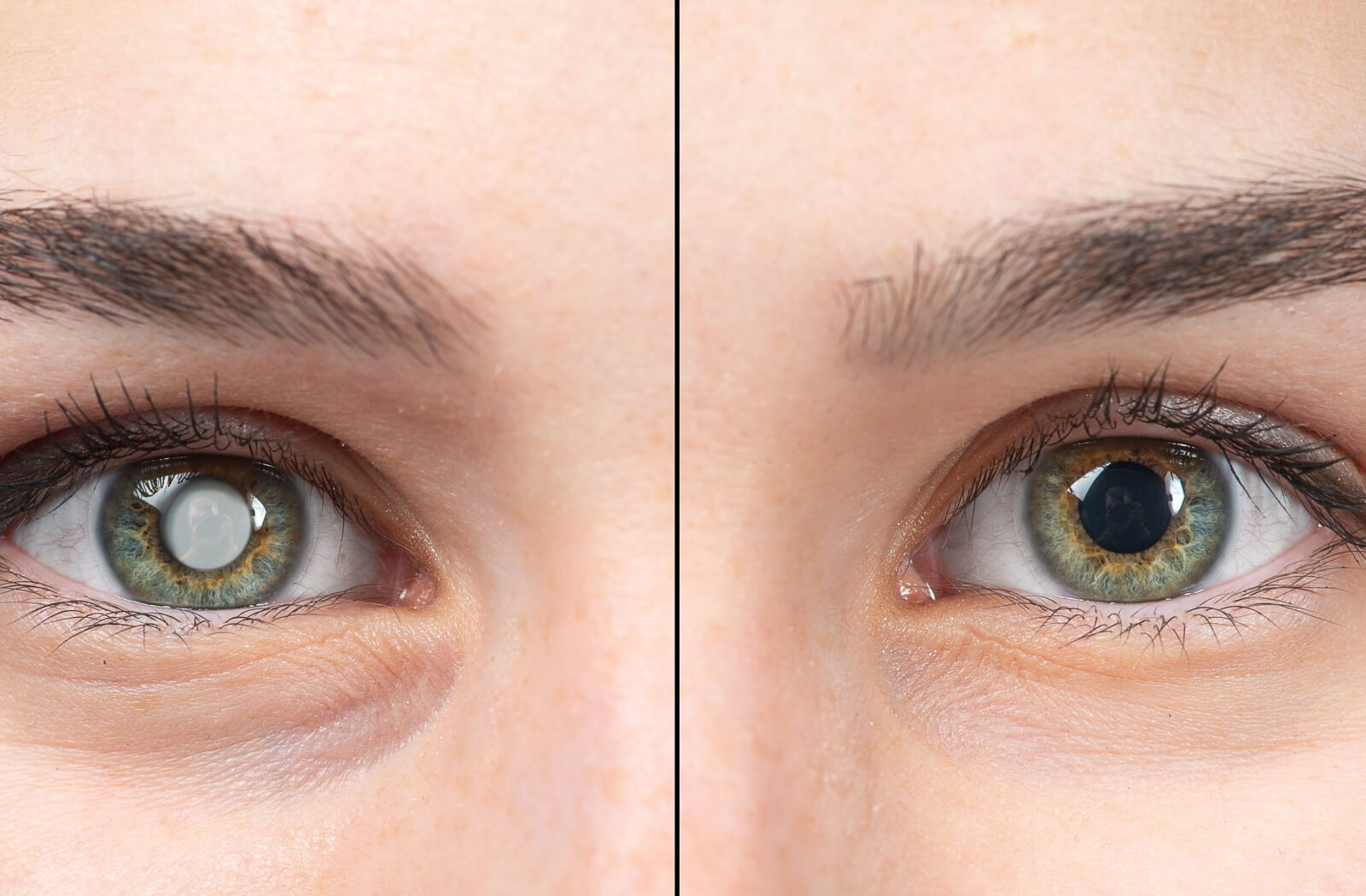Cataracts develop when the normally clear lens in your eye becomes cloudy. Cataracts happen to almost everyone as they age, and your eye care professional can help diagnose and manage your cataracts.
Proper treatment is important to preserve your long-term vision when dealing with cataracts. Let’s explore how cataracts develop, the signs and symptoms, and prevention and treatment options.
What Are Cataracts?
The natural aging process of your eye leads to metabolic changes in the natural lens, which is responsible for focusing light on the retina. It’s important to stay consistent with your eye exams to detect cataract development early!
Cataracts are a leading cause of vision loss in Canada and affect over 2.5 million Canadians struggling with vision impairment. Some signs and symptoms of cataracts can include:
- Glare and halos when focusing on light
- Difficulty seeing small details
- Poor night vision
- Sensitivity to bright light
- Double vision
A comprehensive eye exam can help your optometrist determine if you have cataracts and recommend a treatment plan.
Cataract Prevention
Studies around the formation and management of cataracts are ongoing, but there are some prevention methods available to help slow cataract progression.
Protecting your eyes from harmful UV rays with sunglasses is an excellent option, along with eating foods rich in antioxidants like:
- Dark green veggies like kale and broccoli
- Blueberries, strawberries, and raspberries
- Pecans
- Small red beans
Cataract Treatment
In the early stages of cataracts, your eye care professional may recommend new lenses for your glasses to help manage vision changes due to cataracts.
However, when cataracts begin to interfere with your daily activities like driving or reading and glasses don’t help, your eye doctor can refer you to a cataract specialist for surgery. Cataract surgery involves removing the cloudy natural lens and replacing it with a clear artificial lens to restore your clear vision.
When you undergo cataract surgery, you may also have the option to choose a lens replacement that could correct your vision if you had a refractive error before cataracts.
Cataract surgery is a safe procedure and is commonly performed to restore vision, resulting in a 95% success rate among patients experiencing prior vision impairment.
Do Cataracts Affect Everyone?
Cataracts affect almost everyone as they age and are more common in people over the age of 60. Cataracts can develop slowly over time or form rapidly in a matter of months, so it’s a good idea to stay up-to-date on your eye exams to monitor changes in your vision.
Cataracts are considered a normal part of the aging process, and almost everyone will develop some amount of cataracts during their lifetime. Practicing good prevention methods like monitoring your diet and protecting your eyes from harmful UV rays can help slow the progression but not prevent them entirely.
However, age isn’t the only risk factor associated with cataracts—other risk factors can include:
- Hereditary issues
- Diabetes
- Alcohol & cigarette consumption
- Medications
- Previous eye injuries
Regularly scheduled eye exams can help manage your cataracts effectively.
Preserving Your Clear Vision
Cataracts are a natural part of the aging process. Still, the good news is that your eye care professional can help you manage cataracts and recommend treatment and prevention options along with pre and post-operative care for cataract surgery.
Book an appointment with our team at Urban Optique for all your cataract management needs and help preserve your vision today.
Urban Optique works closely with surgeons in the area, and we can perform tests to identify cataracts early in their development and recommend cataract surgery if necessary. We are your partners in eye health.
















